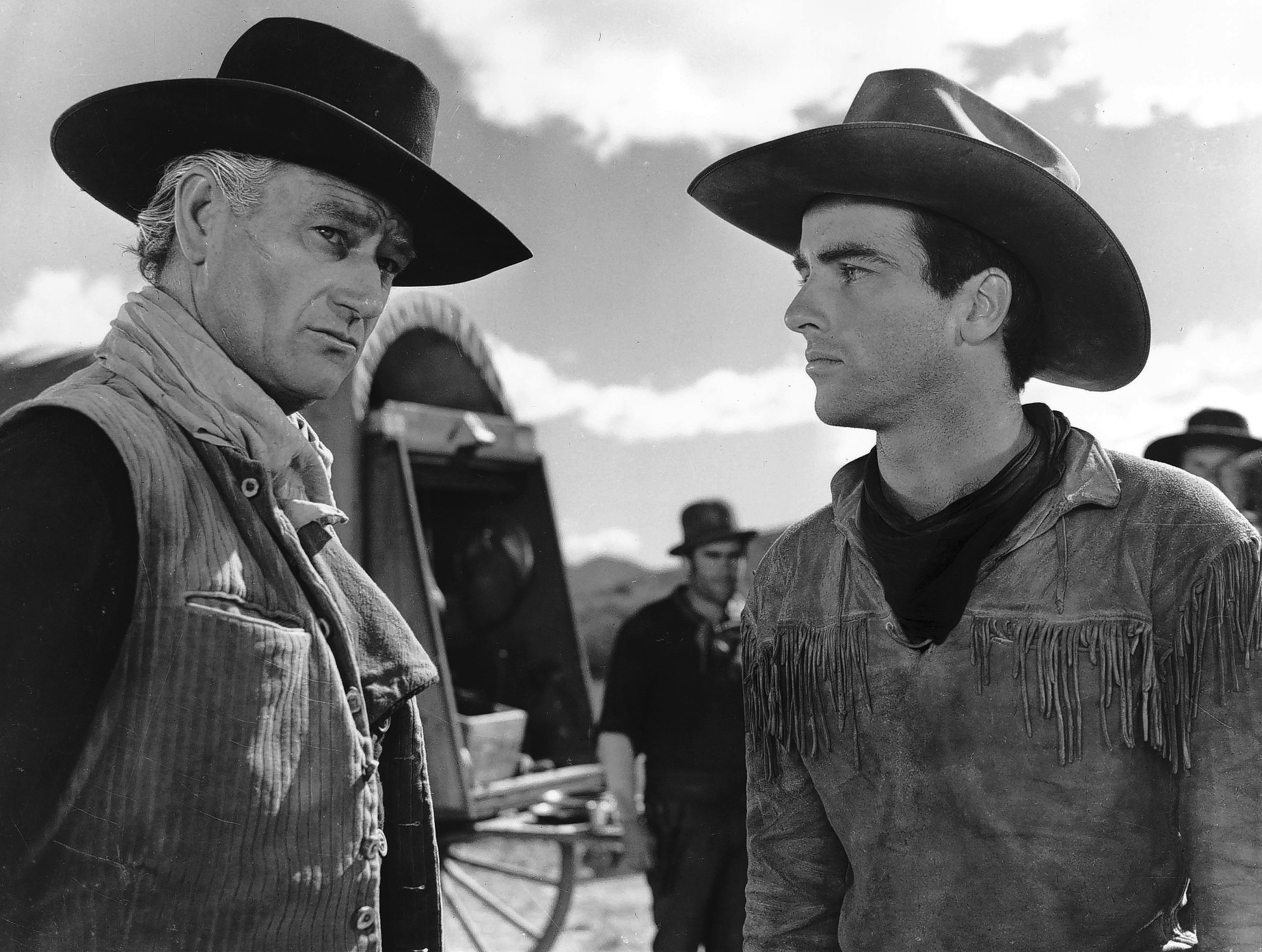Screenings take place at the Campus Theatre unless otherwise specified (both The Gallery Theatre and Rooke Hall, Chemistry Building are on Bucknell’s campus). Admission to films screening as part of the Tuesday BU Film Series is $2; all other screenings are free.
Wednesday, September 2 at 7pm, The Gallery Theatre
MEEK’S CUTOFF
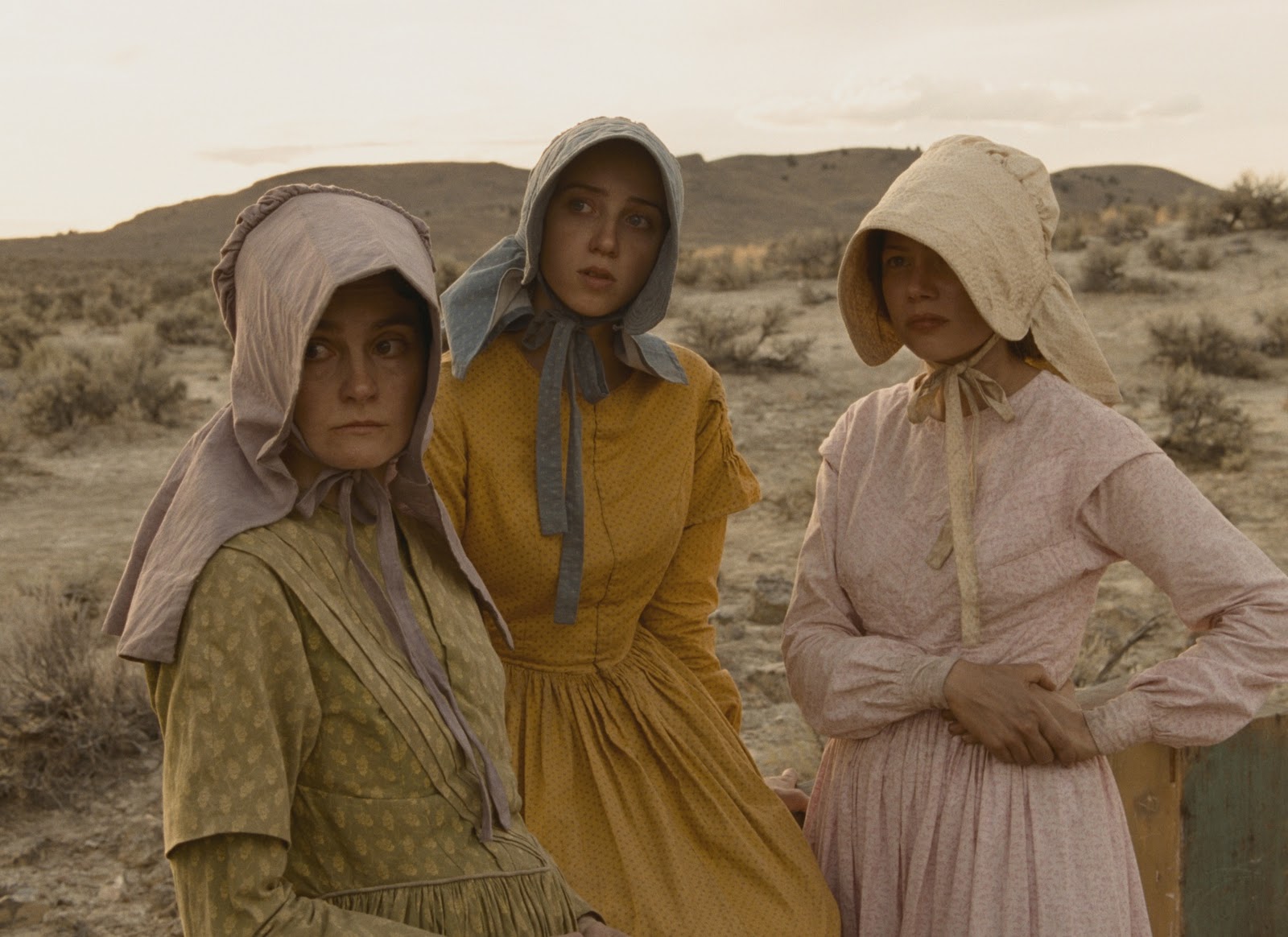
Kelly Reichardt (U.S. 2011) 104 min. With Michelle Williams, Bruce Greenwood, Will Patton.
The year is 1845, the earliest days of the Oregon Trail, and a wagon train has hired a guide to lead them over the Cascade Mountains. Over the coming days, the emigrants face the scourges of hunger, thirst and their own lack of faith in one another’s instincts for survival. When a Native American crosses their path, they are torn between their trust in a guide who has proven unreliable and a man who has always been seen as a natural born enemy.
RED RIVER
Howard Hawks (U.S. 1948) 133 min. 35MM. With John Wayne, Montgomery Clift, Walter Brennan.
A classic of the Western genre and arguably Howard Hawks’ greatest film, Red River also established John Wayne as a superstar. The Duke plays an increasingly tyrannical cattle baron driving his men and a herd of 9,000 cattle along the storied Chisholm Trail, across the Texas range to the railhead in Kansas. Hawks’ formidable direction mines the tensions and deep rivers of affection between macho Wayne and his independent-minded adopted son (Montgomery Clift in a breakout performance) for an epic story driven itself by the codes of masculinity that propel the myths of the American West.
TOP OF PAGE
Tuesday, September 15 at 7pm
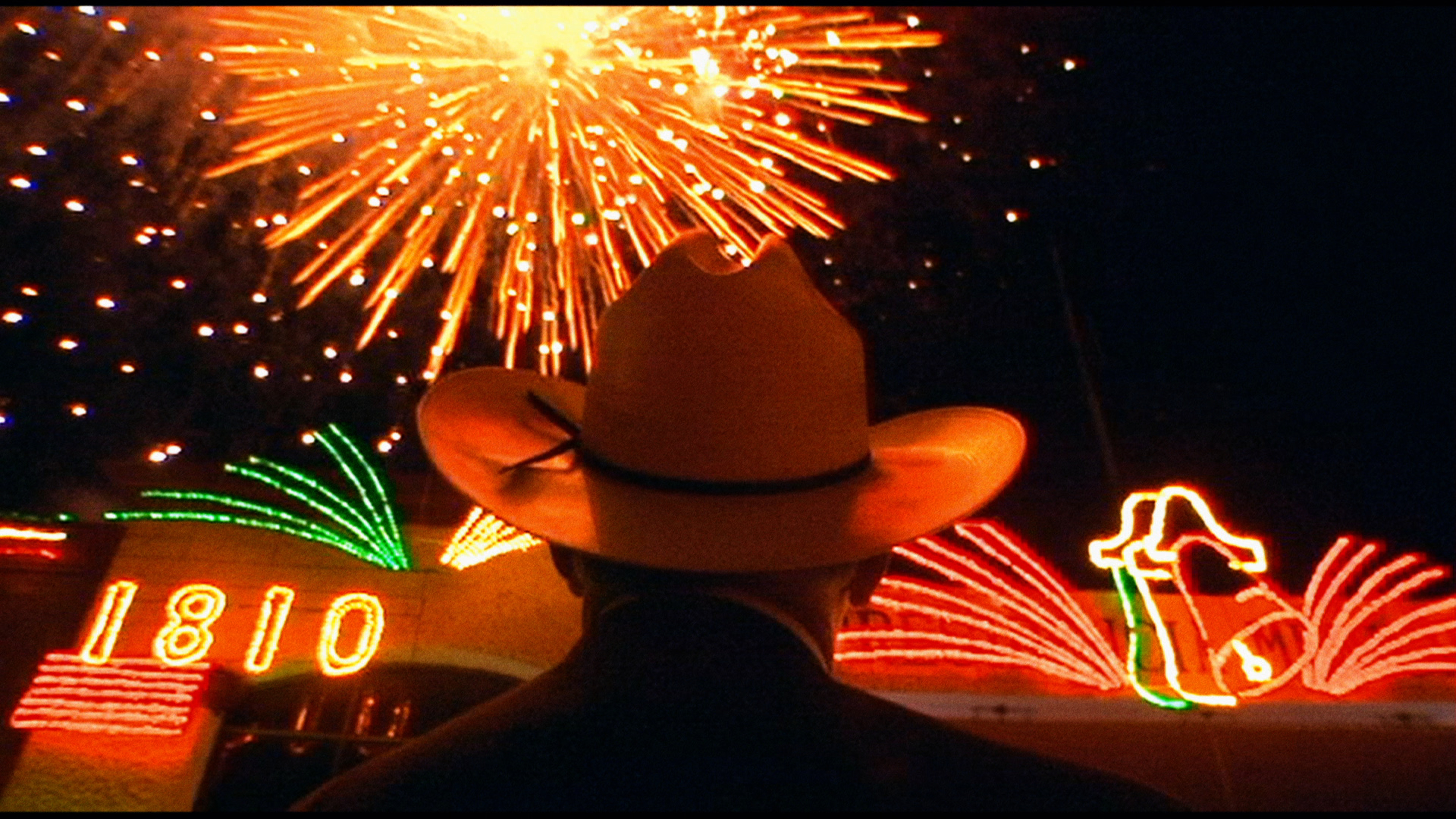
WESTERN – Pennsylvania Premiere!
Turner Ross and Bill Ross IV (U.S. 2014) 93 min. DCP. English and Spanish with English subtitles.
For the third in a series of films critics refer to as their ”Americana trilogy,” Ohio-born documentarians the Ross brothers applied their impressionistic-verité style to the mythic terrain of the American West. In Eagle Pass, Texas, where the U.S. and Mexico meet along the Rio Grande, a fifth-generation cattleman and the longtime mayor face the dawn of a new reality when cartel violence threatens to close the border and divide two communities that have been living together harmoniously for decades. Winner of the U.S. Documentary Special Jury Award for Vérité Filmmaking at the 2015 Sundance Film Festival.
“Using images and representations from the classical western genre as their visual entry, the Rosses observe a real-life, unfolding drama on the US-Mexico border. Like their previous films, Western is an intense, detail-rich study of a place, but this time there’s a floating, unique tension between narrative and atmosphere that creates a distinctive experience.” – Robert Greene, Sight & Sound
Wednesday, September 23 at 7pm
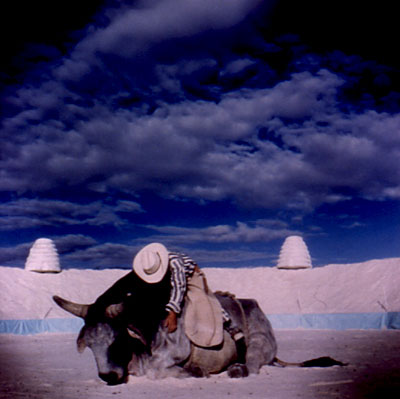
Cremaster 2
Matthew Barney (U.S. 1999) 79 min. 35MM. With Matthew Barney, Norman Mailer.
A gothic Western that introduces conflict into the system. On the biological level, this stage in Barney’s epic cycle corresponds to the phase of fetal development during which sexual division begins. Cremaster 2‘s looping narrative shifts from 1977, the year of Gary Gilmore’s execution, to 1893 when Harry Houdini, who may have been Gilmore’s grandfather, performed at the World’s Columbian Exposition.
Wednesday, September 30 at 7pm, Rooke Hall (Chemistry Building)
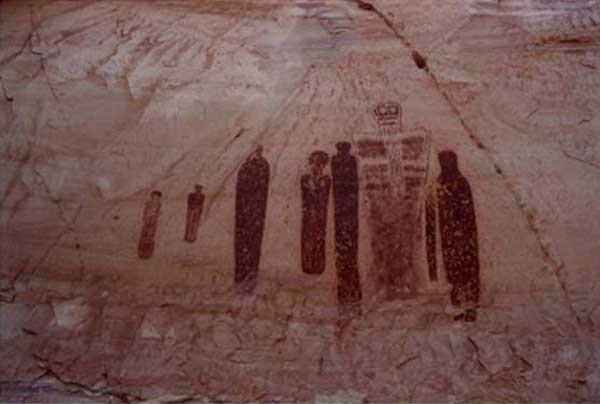
Four Corners
James Benning (U.S. 1997) 76 min. 16MM.
Veteran filmmaker James Benning’s Four Corners uses a specific geographic location to pose larger questions about the United States. “Here, the geographic and wholly imaginary place Four Corners, that favorite tourist destination where Colorado, New Mexico, Arizona and Utah meet, becomes a kind of theoretical ground zero, the site from which Benning can give voice to other, pointedly unofficial sorts of spurious conspiracy (the history of the United States), but one in which each sound and each image hints at a story not yet fully told (the histories of the United States.).” – Manohla Dargis, LA Weekly
TOP OF PAGE
Wednesday, October 7 at 7pm, The Gallery Theatre
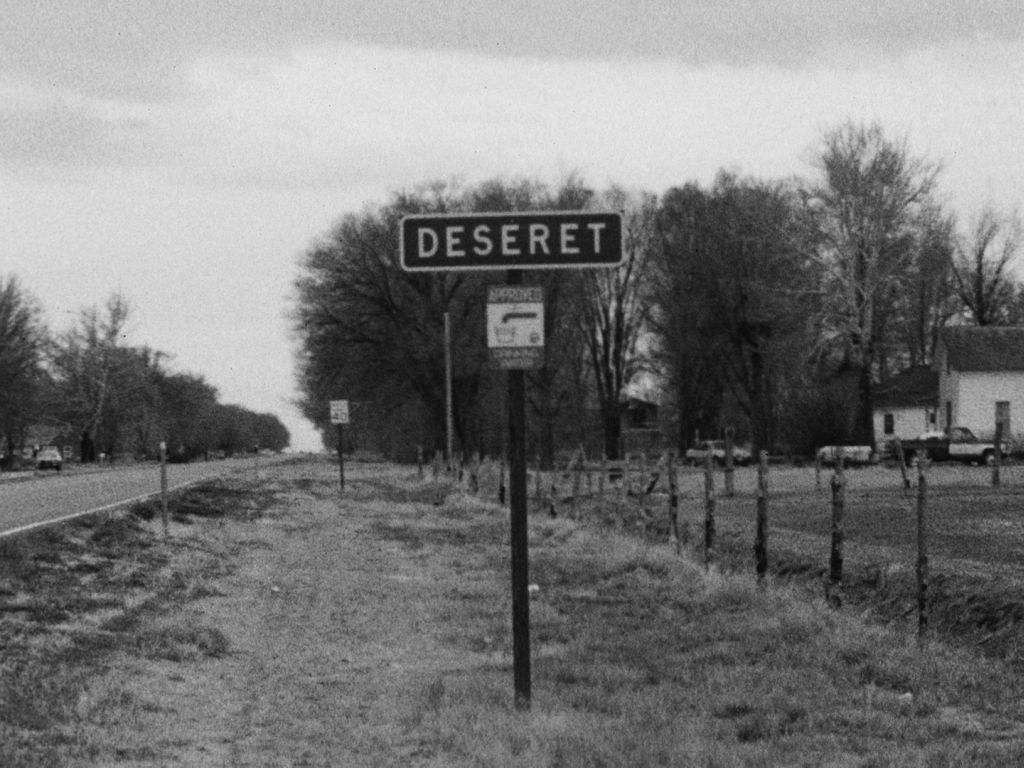
Deseret
James Benning (U.S. 1995) 82 min.
Benning retells the history of America’s Mormon State of Utah by fusing more than 90 separate shots (comprising spectacular black & white and color landscape images), with a voiceover narrator quoting articles published in the New York Times between 1852 and 1992 that reference the violent struggles between Mormons, Native Americans, and the Federal Government, as well as nuclear/biological weaponry and toxic waste sites.
TOP OF PAGE
Wednesday, October 28 at 7pm, Rooke Hall (Chemistry Building)

Meat
Frederick Wiseman (U.S. 1976) 113 minutes. 16MM.
In 1976, Wiseman went to the Monfort Meat Packing Company in Greeley, Colorado to observe “animal fabrication,” the process through which cattle and sheep become consumer goods. Nothing is spared. The film depicts the entire process, illustrating points and problems in the area of automated production, transportation, logistics, equipment design, time-motion study, and labor management. (Yale Union Program Notes)
Wednesday, November 11 at 7pm, Rooke Hall (Chemistry Building)
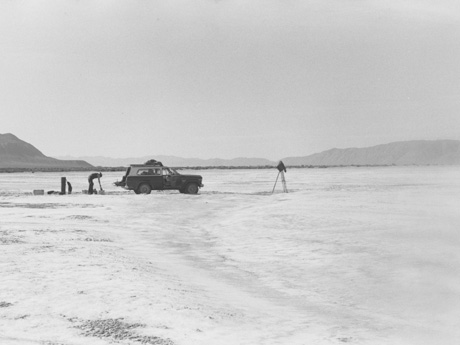
The Sky on Location
Babette Mangolte, 1982, 78 min. 16MM.
“Is it possible to confront nature with a real purity of vision? The Sky on Location is a personal meditation on the landscape of the American West that tracks the ruling conception in nature in the 19th and 20th centuries from the pioneers through the instamatic tourists, at the same time that it obsessively follows the four seasons. The elemental vicissitudes of the weather, the exact moment of the day, the color of the light and the soil and the trees form an acute visual record of the constantly changing mood of the landscape. The film successfully attempts, with quiet, passionate, almost single-minded firmness, to confront us as nakedly as possible with our cultural inability to see nature whole, without preconceptions.” – Ernest Larsen
TOP OF PAGE
Wednesday, November 18 at 7pm, The Gallery Theatre
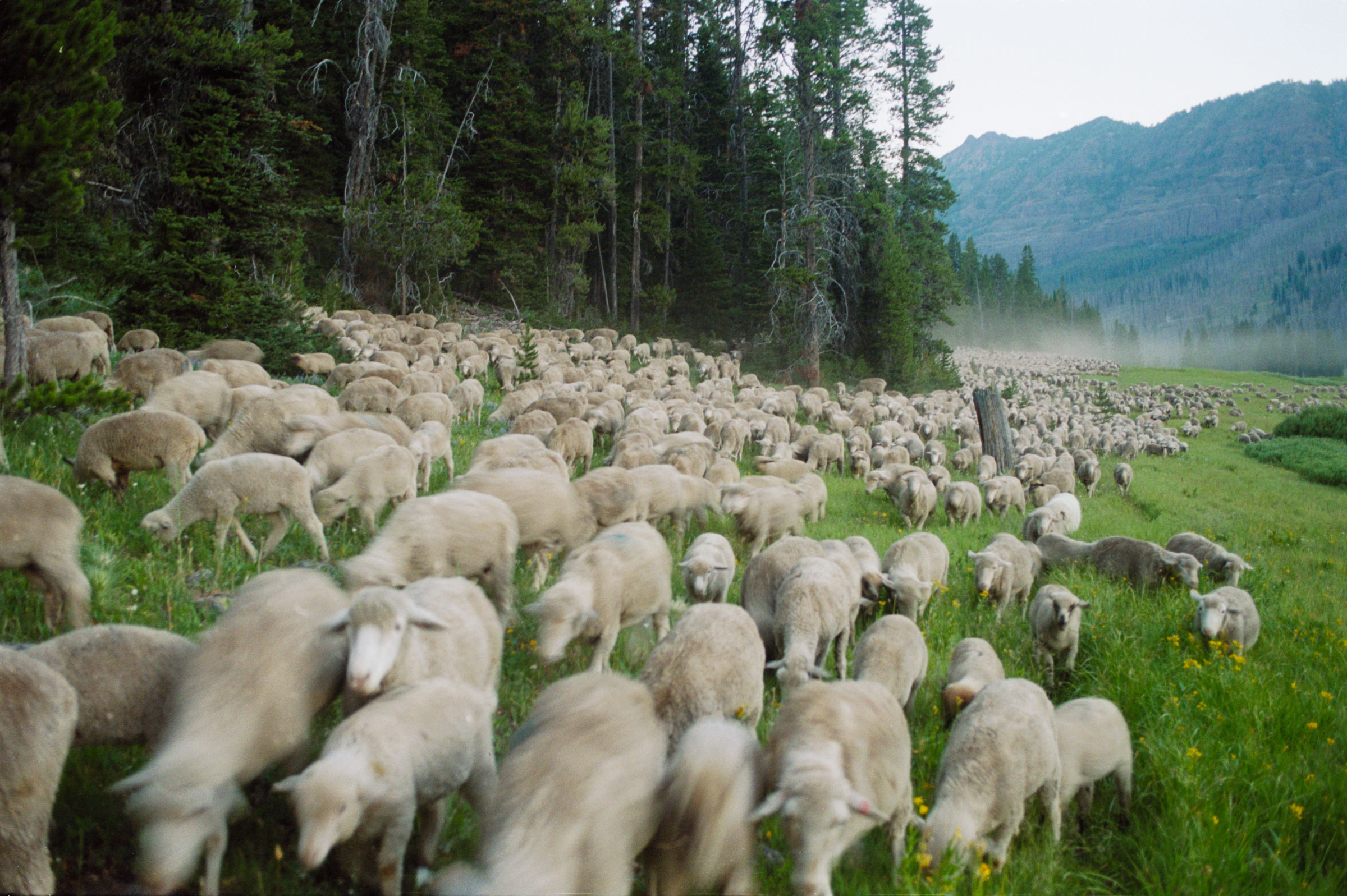
Sweetgrass
Lucien Castaing-Taylor & Ilisa Barbash (U.S. 2010) 107 min.
A sweeping panorama and intimate portrait of a vanishing way of life, Sweetgrass documents the efforts of a small group of herders to drive their sheep into Montana’s Beartooth Mountains for summer pasture. Castaing-Taylor and Barbash’s epic study of man in nature is shaded by a mournful eulogy for the frontier that recalls the revisionist Westerns of the 1970s. (Adapted from Harvard Film Archive program notes)
